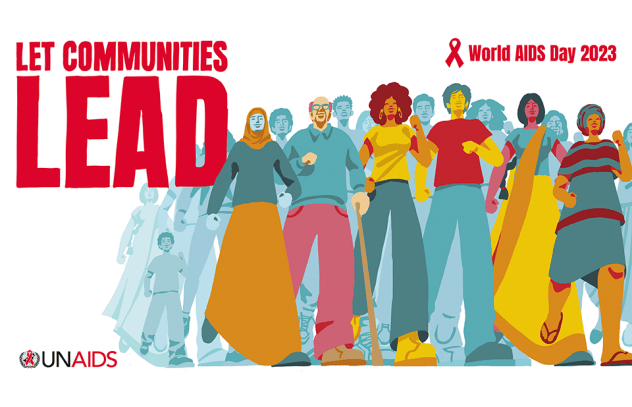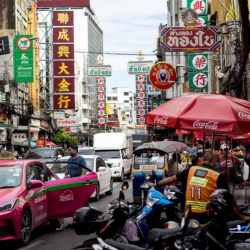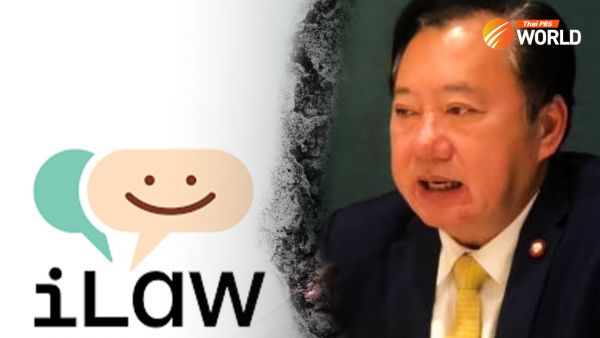Communities may be best line of defense as HIV/Aids makes a comeback in Thailand

Civic groups battling to eradicate HIV/Aids in Thailand are ready to “Let Communities Lead” – the theme of World Aids Day 2023 on December 1 – but say they need more support including funding from relevant authorities.
“We have long supported Thai authorities and international organizations in efforts to end Aids. Yet we still face obstacles from [government] regulations and policies,” said Surang Janyam, who chairs an Aids-related NGO network and heads the SWING (Service Workers IN Group) protecting the health and rights of sex workers.
She says it is high time that Thai health authorities provided a proper structure for civil society organizations and communities fighting the disease, as well as solid funding to support sustainable operations.
Let communities lead
Surang said communities should take the lead in this effort because those at risk of catching HIV are often inaccessible to state agencies due to their bureaucratic work approach and perspectives.
“Only when you allow people in the same communities to talk to at-risk residents will we be able to improve our mission,” she said.
Surang insisted she had nothing against authorities’ current work and efforts but said all parties involved should admit that state-run medical facilities and their staff are overwhelmed.
“We need civil society organizations to fill the gap. Our staff can be trained to support the mission,” she said. “It’s just that we need financial support too, otherwise our operations won’t be sustainable.”
Established in 2004, SWING initially focused on sex workers, MSM (men who have sex with men), and LGBTQ people.
But today its services have expanded to cover blood tests and prescribing PrEP (Pre-Exposure Prophylaxis) in partnership with the Department of Disease Control (DDC)’s Bangrak Medical Center.
SWING runs three branches covering Thailand’s biggest red-light districts – in Bangkok’s Silom and Saphan Kwai and Chon Buri’s Pattaya.
DDC deputy director-general Dr Thiti Haetanurak said he hoped communities would jointly lead efforts to ending Aids via four key measures: case-finding and better access to self-testing; emotional support for people living with HIV; prevention of new HIV infections; and compiling a solid and reliable database for the missions.
The civil sector currently operates 39 clinics offering services related to Aids/HIV, according to National Health Security Office deputy secretary-general Yupadee Sirisinsuk.
This year, the office has allocated a budget of 575.7 million baht for use in HIV prevention. Of the amount, 182.25 million baht went to NGOs.
Better treatments, weak education
Surang said the government had prepared strong healthcare for people living with HIV but its efforts to prevent new infections were faltering.
Thailand aims to eradicate new Aids cases by 2030. Achieving that goal means reducing new HIV infections to no more than 1,000 a year and bringing the Aids-related death rate down to 4,000 or fewer.
The goal also requires a reduction in the problem of HIV and gender stigmatization and discrimination to no more than 10% of Thais.
Blood tests in Bangkok show new HIV infections have fallen slightly this year from 2022, according to SWING. Of 9,244 MSM tested, 10.59% were positive for HIV.
Of 1,379 male sex workers, 8.52% tested positive. Of 487 transsexual sex workers, 5.61% tested positive. Of 3,041 female sex workers, 0.35% tested positive. Of 994 foreign sex workers tested, 10.77% tested positive. However, the number of new infections nationwide soared from 6,500 in 2021 to 9,230 last year.
Records also show the percentage of youngsters catching HIV has risen in recent years, said Dr Cheewanan Lertpiriyasuwat, director of the DDC’s Division of AIDS and Sexually Transmitted Diseases.
New HIV infections among youths tested rose from 9.5% in 2008, to 14.2% in 2012, 21.8% in 2017, and 22.1% in 2022, she said. DDC surveys also found that only 70% to 80% of respondents used condoms during their last sexual encounter, despite safe-sex campaigns.
Cheewanan said people could not afford to be complacent because every sexual encounter carries risk. She suggested that those too shy to buy condoms in stores could order them online and have them delivered to their homes. She also rejected the idea that using condoms curbs the pleasure of sex or intimacy, saying there was now a vast variety of condoms to explore and try.
She said the government should assign civil society organizations to reach out to and educate youths to curb the infection trend among young people.
Infection could have been prevented
Speaking on condition of anonymity, “G” said he believed he would have been able to avoid catching HIV if he had known about PrEP five years ago. “What I learned in school was to use condoms and not be promiscuous,” he recounted.
G insisted that he was by no means promiscuous since he had only slept with one partner at the age of 15. But a year later, he found that he had contracted HIV.
Guiding light during dark hours
Chutima Saisaengjan, a consultant at the Buddy CU Clinic, said G was devastated, depressed, and sleepless after his blood test confirmed he had been infected. Back then, as a teenager, he was also too afraid to share the news with his aunt, whom he lived with.
“We picked him up from the Chulalongkorn University’s Anonymous Clinic, where he sought a blood test, so as to provide counseling and support,” she explained. Chutima said her clinic had informed G that he could live a normal life with no risk of infecting others if he agreed to take medications continuously.
“Today, he even works part-time at our clinic. He provides moral support to HIV-positive teens and shares his experience with CU medical students,” she said.
When will stigmatization end?
G believes his chance of pursuing his dream career as a flight attendant has gone because he heard that candidates must undergo blood tests. He also lost his job at a convenience store recently after taking a few days off to see doctors for the adjustment of his antiviral medication.
“I suspect that I was fired because my HIV infection was exposed. But officially, my employer claims I was dismissed because I may need to take frequent days off,” G said.
G is now studying for a vocational qualification in computers and hopes to one day get a job where he will be free from discrimination.
By Thai PBS World’s General Desk






